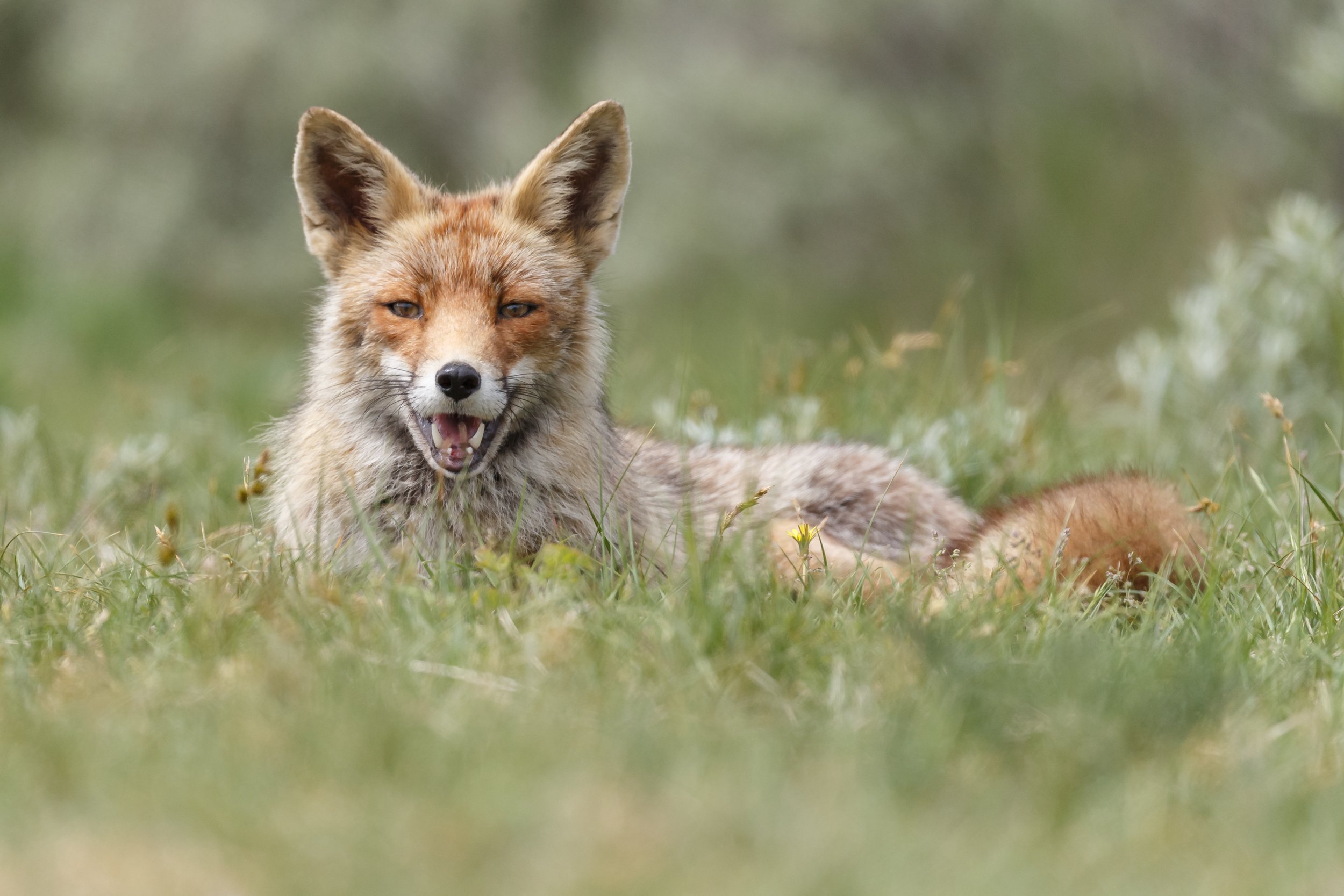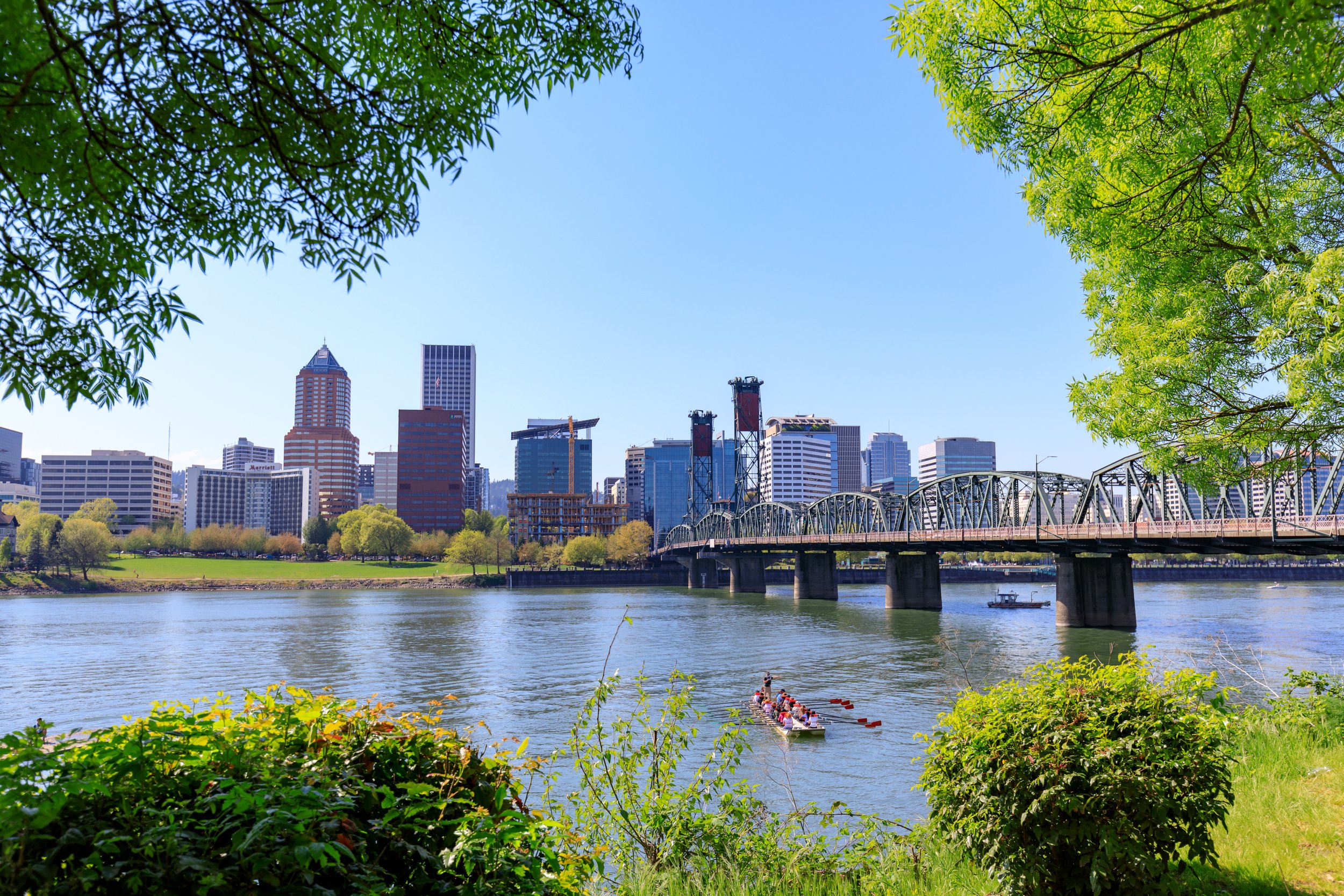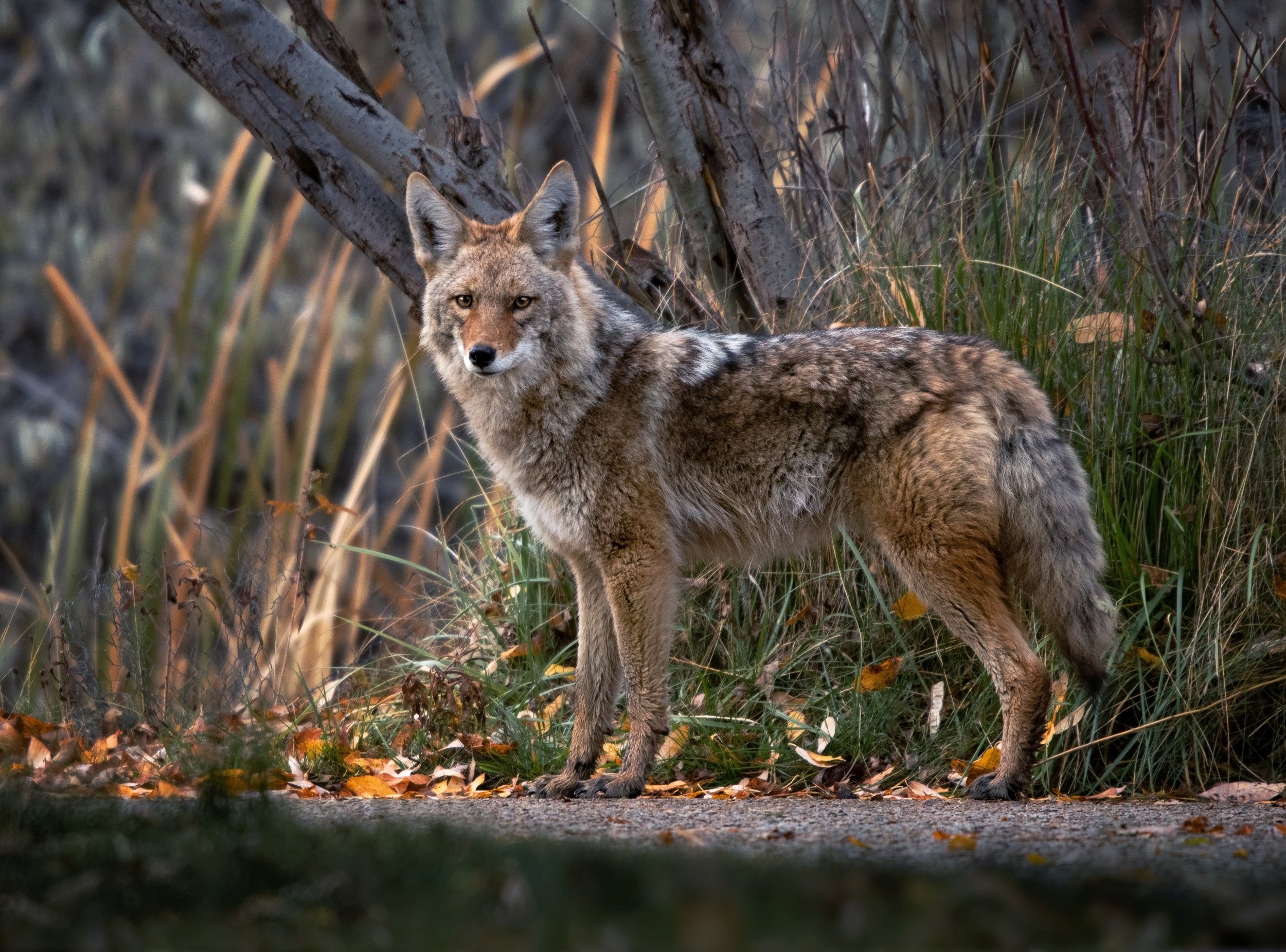Fiscal Sponsorship
Our mission is to empower the lasting conservation of our fish and wildlife and citizen enjoyment of our natural resources. One of the ways we pursue our mission is through fiscally sponsored projects in Oregon that align with our values, priorities, and conservation objectives. Fiscal sponsorship allows a non-tax-exempt person or organization to engage in charitable activities under OWF's nonprofit status.
Some reasons groups decide fiscal sponsorship is the right avenue for them are increased credibility, improved access to funding sources, and low-cost fiscal and other administrative services. With the project sponsor assuming most of the administrative and fiscal responsibilities, project leaders can focus more of their attention on the project itself.
-
Fiscal sponsorship is a contractual relationship that allows a person or organization that is not tax-exempt to engage in charitable activities under the nonprofit status and tax exemption of their sponsoring organization.
Some reasons to consider fiscal sponsorship for your project include:
1. Increased credibility through alignment with an established nonprofit
2. The project is short-term in nature
3. Increased access to additional sources of funding support
4. Fiscal and other administrative services are low-cost
5. With the sponsor assuming most of the administrative and fiscal responsibilities, the project leader(s) can focus more of their attention on the project itself.
The Foundation assesses a base administrative fee of 12.5% against the project’s expenditures on a quarterly basis. This fee may be higher depending on the services provided and the amount and complexity of the grant funds being administered on behalf of the project.
-
Oregon Wildlife Foundation (OWF) will serve as a fiscal sponsor for projects that are consistent with our mission and priorities. As your sponsor, we can offer your project a suite of services to support successful project implementation, including:
1. Tax exemption for your individual donors
2. Capacity to receive and manage foundation and government grants
3. Financial services – eligibility determination for tax-deductible donations & grants, acknowledgment of donations over $50, stock and online donation processing capability, financial statements & record-keeping, weekly check and deposit processing, tax remittance & filings, and an annual independent audit
3. Project & Grants Management Services – problem-solving consultation, assistance in applying for grants, tracking for grant reporting, government grants billing, insurance including general liability, property, & umbrella, certificates of insurance
4. Communications – presence on our website, social media mentions
5. Direct financial support to projects deemed a priority by our Board of Directors
-
Here are the types of fiscal sponsor arrangements that we currently support:
Direct Project Sponsorship: a person or an organization brings a project to the Foundation, and we implement it. Legally, the project is no different from any other activity that OWF sponsors directly.
Independent Contractor Project: The project belongs to the Foundation but is implemented by an independent contractor. Similar to Direct Project Sponsorship, the project activities are legally performed by someone else.
Pre-approved Grant Relationship: a person or an organization, by agreement, applies to the Foundation for one or a series of grants to support a sponsored project, and the Foundation agrees to receive, manage, and grant funds to that project. Under this arrangement, the sponsored project isn’t part of OWF but a separate entity that is responsible for managing its own reporting and liabilities.
-
If you understand our fiscal sponsorship program and want to work with us, the next steps are:
Determine if your project fits with our mission and priorities. Visit our grants page to learn more about our areas of interest, project priorities, and the types of projects that the Foundation does and does not support.
Discuss your project with our Executive Director; email them or call 503-255-6059 to set up a meeting,
If invited to apply, complete and submit your Fiscal Sponsorship Application.
Your application will be reviewed by our Project committee at their next regularly scheduled meeting.
Our Board of Directors, with a recommendation of approval from our Project committee, will make the final determination regarding a legal arrangement with your project at their next regularly scheduled meeting.
Meet the Projects
Basalt to Breakers Oregon Native Trout Challenge
Basalt to Breakers is a locally based nonprofit focused on Oregon Native Trout conservation. They pursue conservation through their three core values: Education, Engagement, and Exploration. Their current initiative is creating Oregon’s first Native Trout Challenge. This challenge involves the exploration of Oregon’s eight distinct ecoregions as anglers attempt to catch and release a native trout in each ecoregion.
Brown Folks Fishing
Brown Folks Fishing is a community-based organization that is by and for Black, Indigenous, and People of Color (BIPOC) anglers. They cultivate community for BIPOC in fishing and its industry. BFF is a space to build together and a movement to expand access. BFF does their work through storytelling, grassroots organizing, events, and community-building.
Friends of Baltimore Woods (FOBW)
Baltimore Woods is a 30-acre strip of woods, green space, and native plants between residential & industrial areas in the St. Johns neighborhood in Portland. The Friends seeks to preserve Baltimore Woods not only for bicyclists, pedestrians and wildlife, but also as an outdoor classroom for local schools. FOBW formed in 1998 as a group of neighbors who set out to protect this mature canopy cover between North Baltimore and Catlin streets from increasing pressure of development in the neighborhood.
Friends of Fanno Creek Headwaters
Friends of Fanno Creek Headwaters (FOFCH) is a nonprofit organization whose mission is to help save, restore, and educate about the importance of urban green spaces in the Fanno Creek Watershed. They value access to nature for all. FOFCH has used the trail project as a springboard to engage the broader community in various restoration and education programs that will maintain and improve neighborhood green spaces.
Follow the Beaten Path Documentary
Follow the Beaten Path is an environmental documentary that aims to understand the effects non-motorized recreational trail use is having on ecosystems, specifically within central Oregon's national forests. In partnering with OFW all donations are tax deductible. Our goal is the educate people on the impacts we have on our environment and ask questions on how we can move forward in a more sustainable way, so future generations can also enjoy the beauty of the national forests.
Linnton Frogs
Green the Coast, a website platform, provides Central Oregon Coast environmental organizations’ exposure to new audiences through centralized promotion of their volunteer and educational engagement activities. Presenting volunteering as rewarding and exciting, Green the Coast helps spur much needed community and tourist involvement in protecting, restoring and enhancing our natural world.
OSP Fish & Wildlife Conservation K9 Team
Oregon Wildlife Foundation accepts public donations to the Wildlife K-9 Fund to offset expenses associated with the canine members of the Oregon State Police Fish & Wildlife Division K-9 teams. Donations to the fund help defray the costs of veterinary care, training equipment, and related supplies.
Pacific Birds Habitat Joint Venture
Pacific Birds Habitat Joint Venture directly supports birds and their habitats, working at the local, regional and flyway scales. The organization works with projects that raise awareness about birds and why birds matter, directly conserve habitat, increase knowledge or develop data layers that inform conservation work, increase capacity, or create or support local partnerships centered on their priority habitats.
Protect Animal Migration & Movement (PAMM)
An educational non-profit providing the public with fact-based information on wildlife passage. PAMM develops community awareness of the urgent need for barrier-free habitat connectivity for mule deer and elk to migrate.
Tiny Forest Now
TFN helps schools and communities establish Tiny Forests using the Miyawaki planting method. These miniature woodlands, about the size of a tennis court, directly address climate change and biodiversity loss. Tiny Forests grow rapidly, exceeding traditional forests' growth rate by tenfold, acting as essential carbon sinks and fostering biodiversity. Additionally, they serve as outdoor classrooms for educators, students, and the community to engage in meaningful discussions about climate change and empower them with actionable solutions, instilling hope for the future.
West Willamette Restoration Partnership (WWRP)
The Foundation is a member of and the fiscal sponsor for the West Willamette Restoration Partnership (WWRP), a coalition of engaged volunteers, community groups, landowners and organizations working to conserve and enhance the forests and natural areas of SW Portland. Our Partnership supports habitat enhancement and stewardship efforts in southwest Portland’s Willamette River subwatersheds to provide a key link in the wildlife corridor connecting Forest Park and Tryon Creek State Natural Area.
Wallowa Wolverine Project
A non-invasive camera monitoring and genetic sampling to survey for wolverines and other forest carnivores in the Wallowa Mountains.
Urban Ecology Research Coalition (UERC)
The Urban Ecology Research Coalition (UERC) is a consortium of people from educational institutions, state and federal agencies, local governments, non-profit organizations, and businesses, as well as independent professionals and students, interested in supporting urban ecosystem research and creating an information-sharing network to collect, share, and use ecological data in the Portland/Vancouver area. UERC does not provide a political or advocacy platform, but rather offers a forum for professionals to exchange and discuss information regarding urban ecology and its application to relevant issues. UERC activities include an annual Symposia, Lunch and Learn series, and an email Listserv called “urbanerc”.
Urban Wildlife Information Network (UWIN)
The Urban Wildlife Information Network (UWIN) is a science partnership across North America using a standardized wildlife monitoring protocol employing trail cameras to understand the ecology and behavior of urban wildlife species. Created by the Lincoln Park Zoo in Chicago, Portland is one of over 30 cities across North America taking part in the UWIN program. UWIN Portland comprises a transect extending east and west from the city center to less populated areas in Gresham and Hillsboro. Trail cameras are located along this transect at regular intervals. In addition to understanding urban wildlife, UWIN Portland seeks to engage volunteers and students to participate in our partnership.
Green the Coast
Green the Coast, a website platform, provides Central Oregon Coast environmental organizations’ exposure to new audiences through centralized promotion of their volunteer and educational engagement activities. Presenting volunteering as rewarding and exciting, Green the Coast helps spur much-needed community and tourist involvement in protecting, restoring, and enhancing our natural world.

Land Conservation & Stewardship
Learn how we protect and steward land in Oregon.















